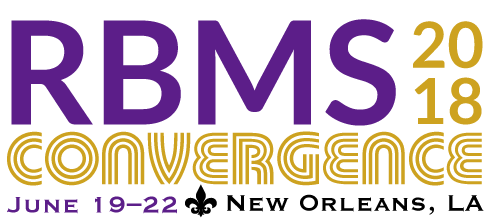Papers Panel: Disruptive Convergences: Breaking the Canon
Sponsored by Arthur Fournier Fine & Rare, LLC
The Western “canon” is a meeting place, a place of convergence. The “great books” of European and North American history impart to students a common knowledge that allows, in theory, for a shared sense of heritage. The usefulness of a “canon” is not unlike Benedict Anderson’s argument in Imagined Communities concerning the rise of “print nationalism:” shared texts create shared identities. Special collections have been influenced by, and continue to influence and value, the construction of a Western canon. Likewise, scholars of bibliography prioritize “high spots” of history as objects analytical description. Yet this approach limits acquisitions policies, who is represented, and who feels welcome within special collections. This approach creates silences in the historical record. The purpose of this “Lightning” panel is to discuss how best to resist these tendencies — to use the meeting place of the canon as a rallying point of resistance.
Each participant will detail the practicalities of disruption.
Karla Nielsen will discuss her work in rethinking the “Great Books” curriculum, refracting European thought through Arabic culture.
Shannon Supple will describe collaboration with students to “decenter” collecting hierarchies within acquisitions policies.
Beatrice Skokan will detail her collaboration with Leandro Soto, to co-curate the exhibit “Caribbean Fragments,” disrupting the canon not only in content but in form, as it is the first an artist has served as curator.
Jesse Erickson will describe how his work with non-book textual artefacts alters the distorted view of heritage “the book” creates.
Brooke Palmieri will describe teaching “The Queer Book” at London Rare Book School, which sought not only to uncover LGBTQ history in the archives, but to apply theories from queer activism to the conceptualization of book history. Finally, a group discussion and Q&A will highly the opportunities created by non-canonical thinking: that amidst disruption, new audiences find warm welcome.
